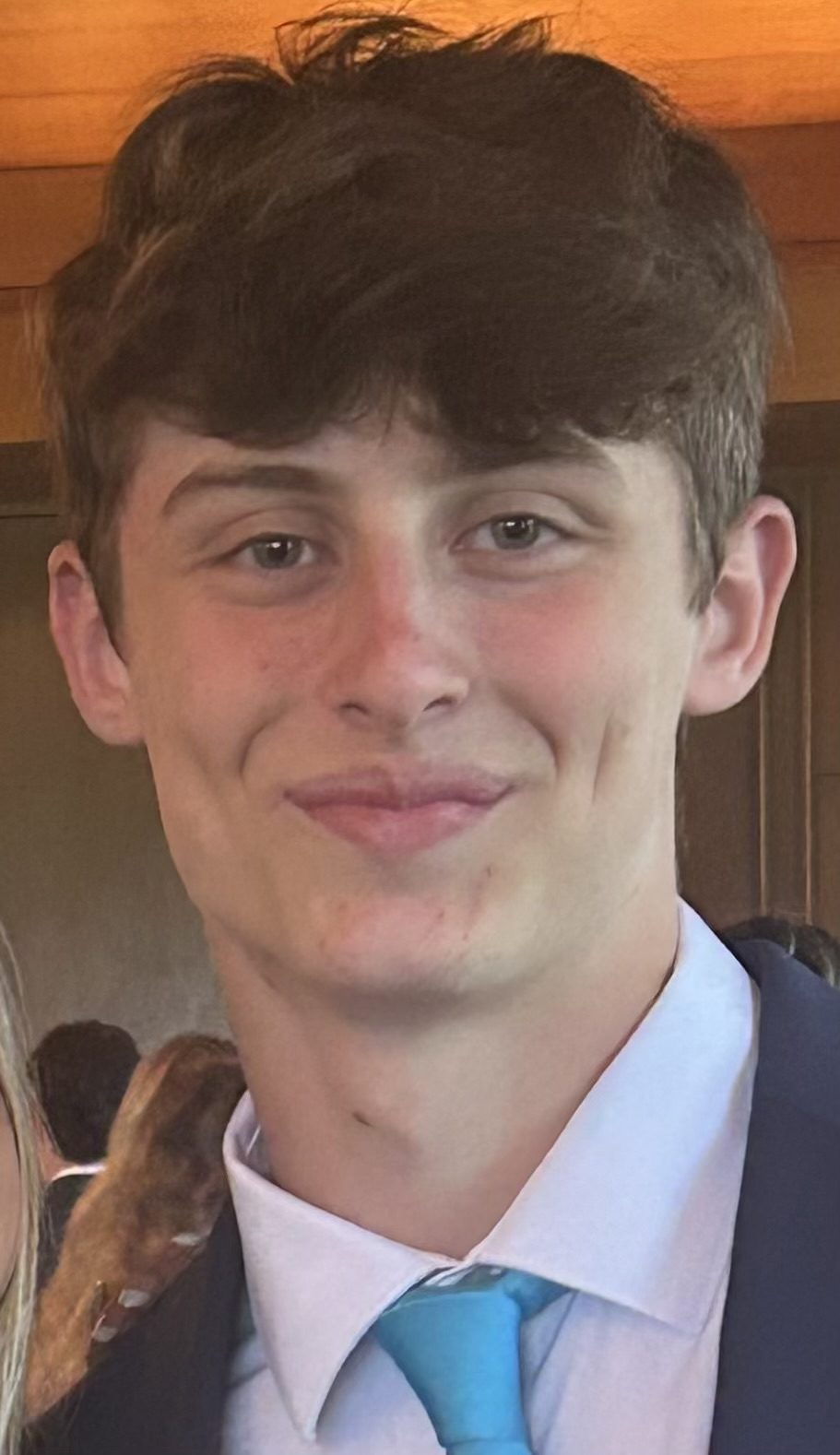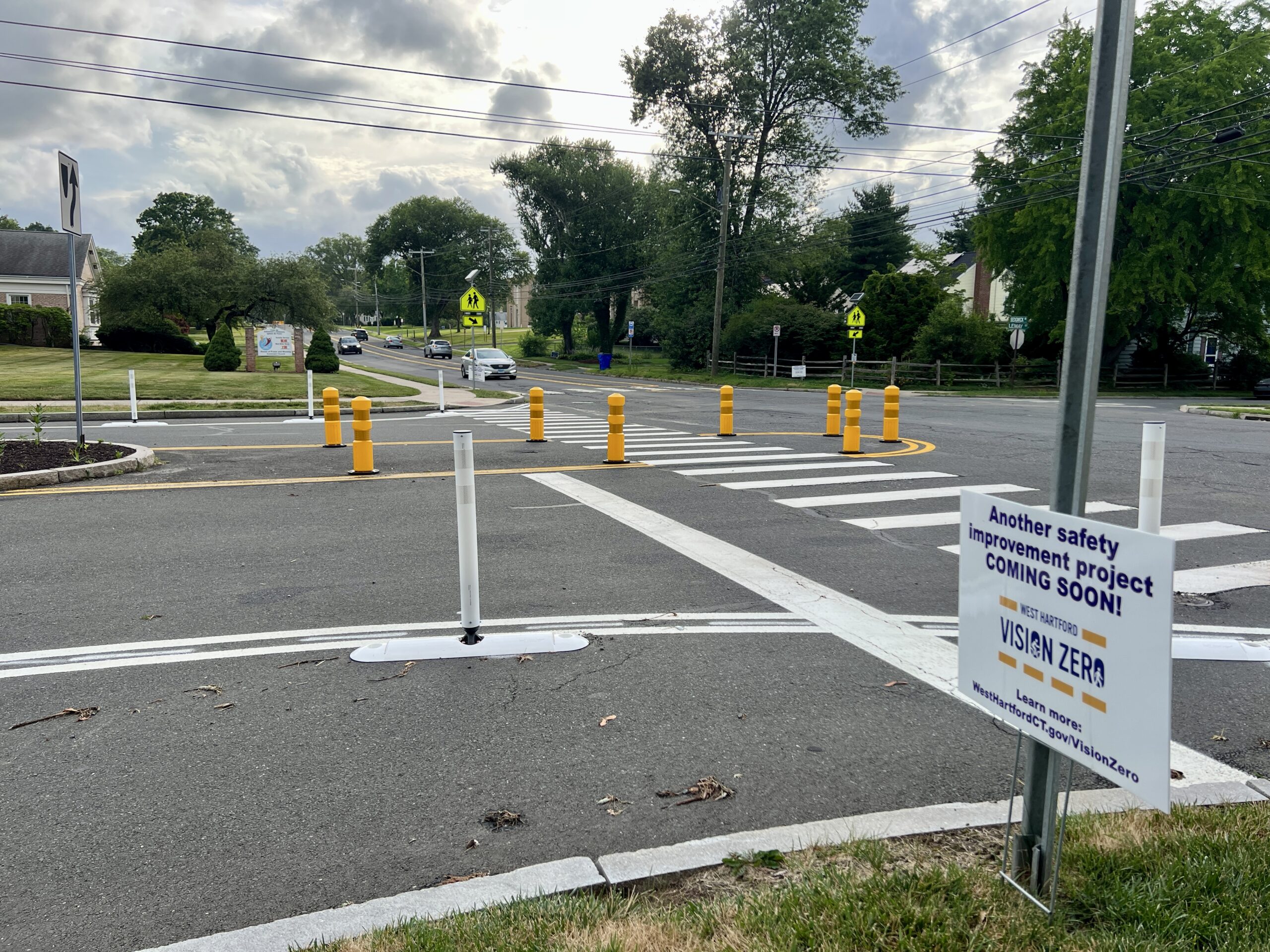Consumer Diary: COVID Re-Emerges

Audio By Carbonatix
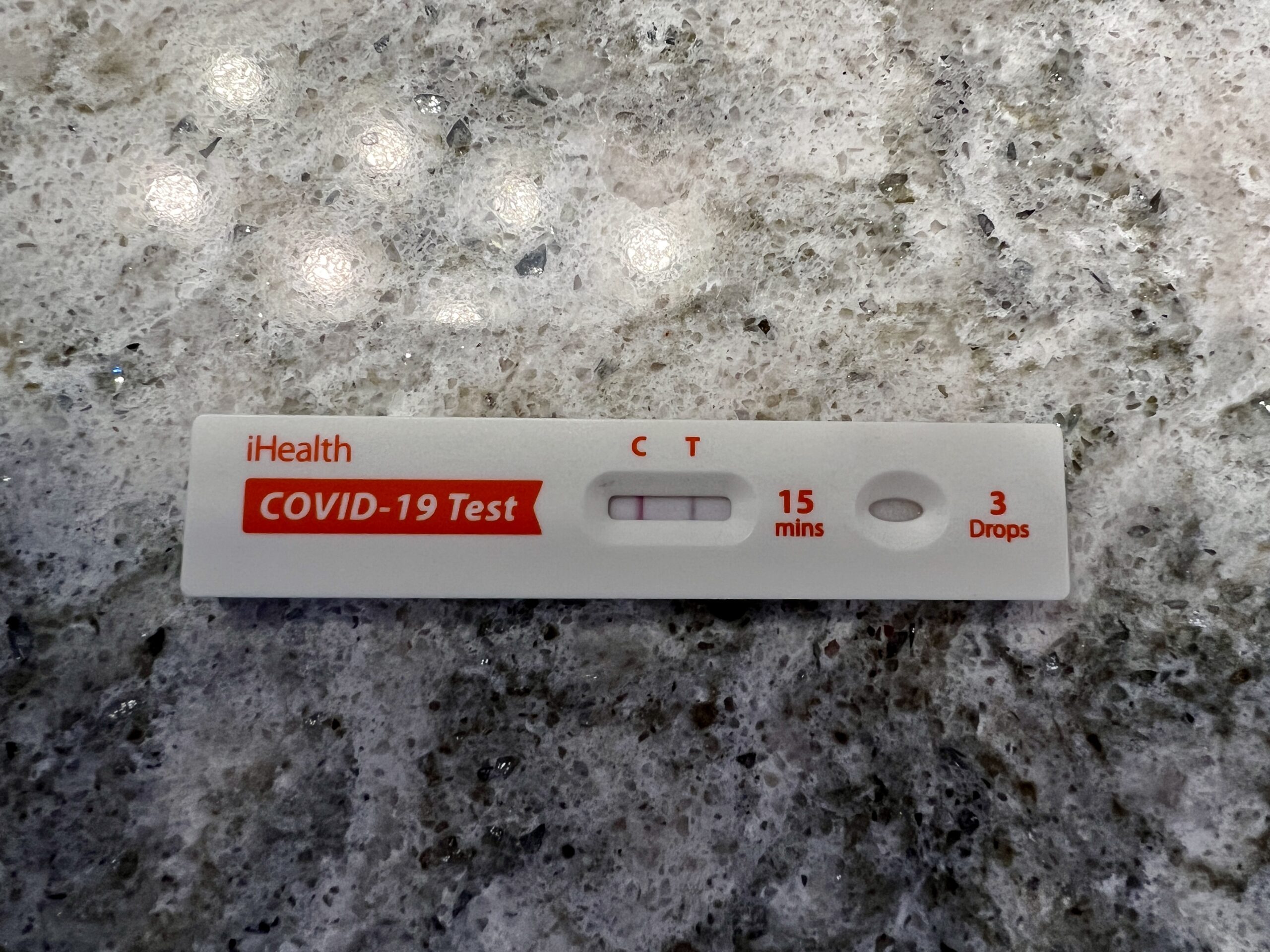
Positive COVID-19 test. Photo credit: Ronni Newton
Consumer columnist and West Hartford resident Harlan Levy has more than 20 years of experience writing stories about everyday experiences that anyone could encounter.
By Harlan Levy
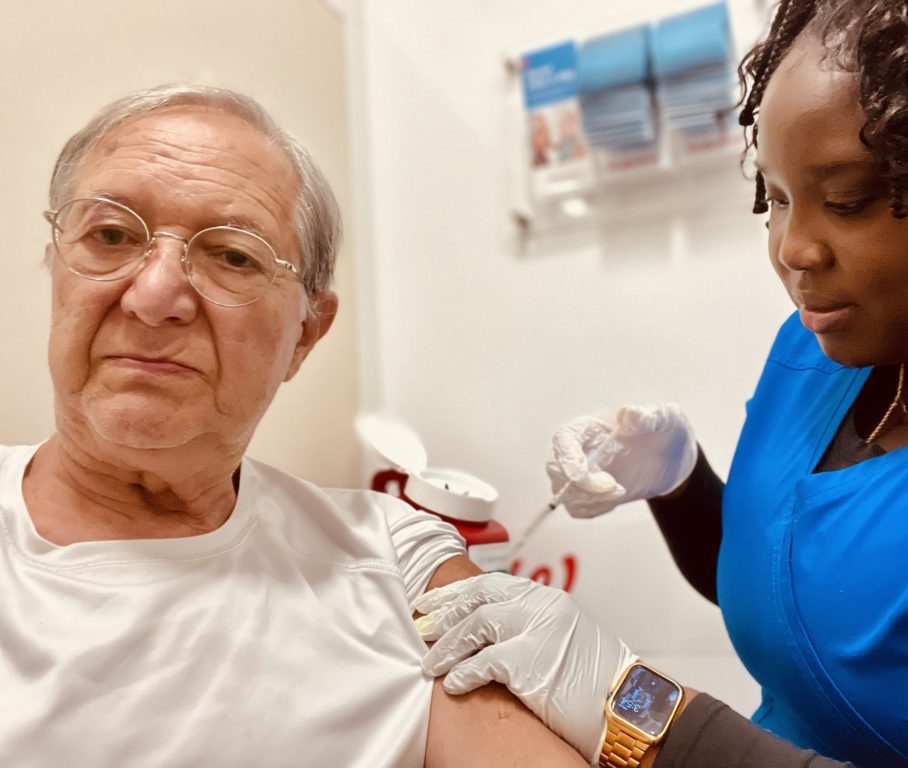
I received the latest vaccinations for RSV and the flu, and the new Moderna COVID shot in the fall. Photo courtesy of Harlan Levy (we-ha.com file photo)
As you may have heard, defying delusional hopes, the COVID season has begun again with full force, joining the chronic flu and now RSV winter seasons. RSV, respiratory syncytial virus, a common respiratory virus usually causes mild, cold-like symptoms. Most recover in a week or two, but infants and older adults are more likely to develop severe RSV and need hospitalization.
This happens to be the first fall and winter virus season where vaccines are available for all three viruses, which are responsible for most hospitalizations, with the RSV vaccine available for the first time.
But I apparently specialize in COVID.
On Wednesday, Dec. 20, I tested positive for COVID (fourth time) after returning from a very long weekend in New York City celebrating our daughter’s and her husband’s Dec. 18 birthdays (and babysitting our 2 ½-year-old grandaughter). Yup. Both have the same birthday. But it was ruined when her husband felt sick on Dec. 16, the night of their lavish birthday bash. He tested positive on Dec. 17. Meanwhile, our grandaughter’s nanny also tested positive Dec. 17 , probably catching it from a daycare pickup. Then my wife tested positive on Dec. 19. It was my turn on Dec. 20, although I had no symptoms and tested negative on Dec. 25 and again on Dec. 27.
So not only has COVID reappeared as strong as last year, but those who never got their updated COVID shot – my wife and our daughter’s husband – suffered much more strongly and longer than those who did, like me, although demographically I’m the most vulnerable. My daughter also got the booster and never tested positive.
I urged both of them to get their COVID booster update as well as the two other vaccines to counter the threat, but when is the question … and how effective are the three vaccines now in the middle of the heightened virus season and when do they take effect after getting the shots. I asked University of Connecticut Health Center infections disease chief Dr. Kevin Dieckhaus those and other relevant questions:
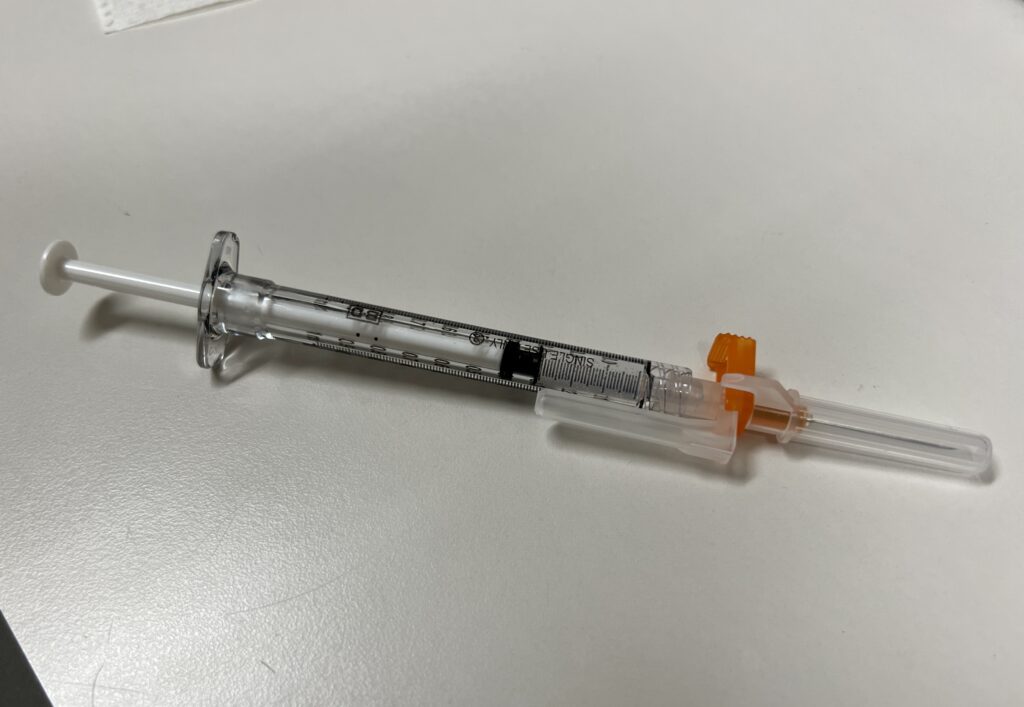
COVID booster, October 2023. Photo credit: Ronni Newton
Q: Where in the season are we for COVID, flu, and RSV?
A: COVID and flu are on the rise. We’re moderate for COVID and flu compared to neighboring Massachusetts and New York City, considered high, and a second wave is coming our way. For RSV we’re at its peak and seeing a slight decrease. Overall, the season should last into February and March and into the spring, with a shorter season for RSV.
Q: How effective is getting the updated COVID shot now if you haven’t caught COVID?
A: There are so many variables that it’s hard to predict, but we do know that vaccination does lessen the likelihood of having a significant illness and significant symptoms.
Q: After testing positive for COVID near the end of December and then negative last week, when should you get the vaccines?
A: After a clinical illness you should wait two months before getting vaccinated. Meanwhile, having had the infection gives you some immunity protection for the immediate future.
Q: After testing positive, then negative, how long should one isolate?
A: After testing positive you should isolate for five days. If you then test negative on day five you can be around people through day 10 if you wear a mask. Masking is less important after day 10.
Q: Should you take all three vaccines together?
A: You absolutely can. But you may have soreness at the injection site and feel achey. The COVID vaccine does on average have a little bit more adverse effects than the flu vaccine. But it’s a personal preference. They’re not going to negatively impact each other. You don’t have to time it out.
Q: What are the age parameters for getting the vaccines for the three viruses?
A: The updated COVID vaccines from Pfizer and Moderna are for everybody over age six months. Flu is also for everybody over age six months. For those over 65 there’s a special flu vaccine with a higher dose. For RSV the vaccine is for those over 60 and women who are pregnant – to protect the baby.
P.S.: Monday night (Jan. 1, 2024) I started sneezing and coughing and had a continuous runny nose. I woke up Tuesday feeling tired and took a COVID test in the late afternoon. I can’t believe I tested positive after testing negative twice last week, five days then seven days after testing positive. Obviously, COVID doesn’t give up easily.
NOTE: What I experienced, it turns out, is the common “rebound COVID,” which I had never heard of. It can occur after a course of Paxlovid, which I finished last week. According to Yale Medicine and the U.S. Centers for Disease Control, “COVID rebound is a recurrence of COVID symptoms [accompanied by] a positive COVID test after having the disease and then testing negative. It occurs between two and eight days after initial recovery, including in people who were ‘up to date’ on their COVID vaccinations. It’s characterized by a brief surge in symptoms that might last a few days. It’s different from Long COVID.”
Now you know.
Like what you see here? Click here to subscribe to We-Ha’s newsletter so you’ll always be in the know about what’s happening in West Hartford! Click the blue button below to become a supporter of We-Ha.com and our efforts to continue producing quality journalism.


